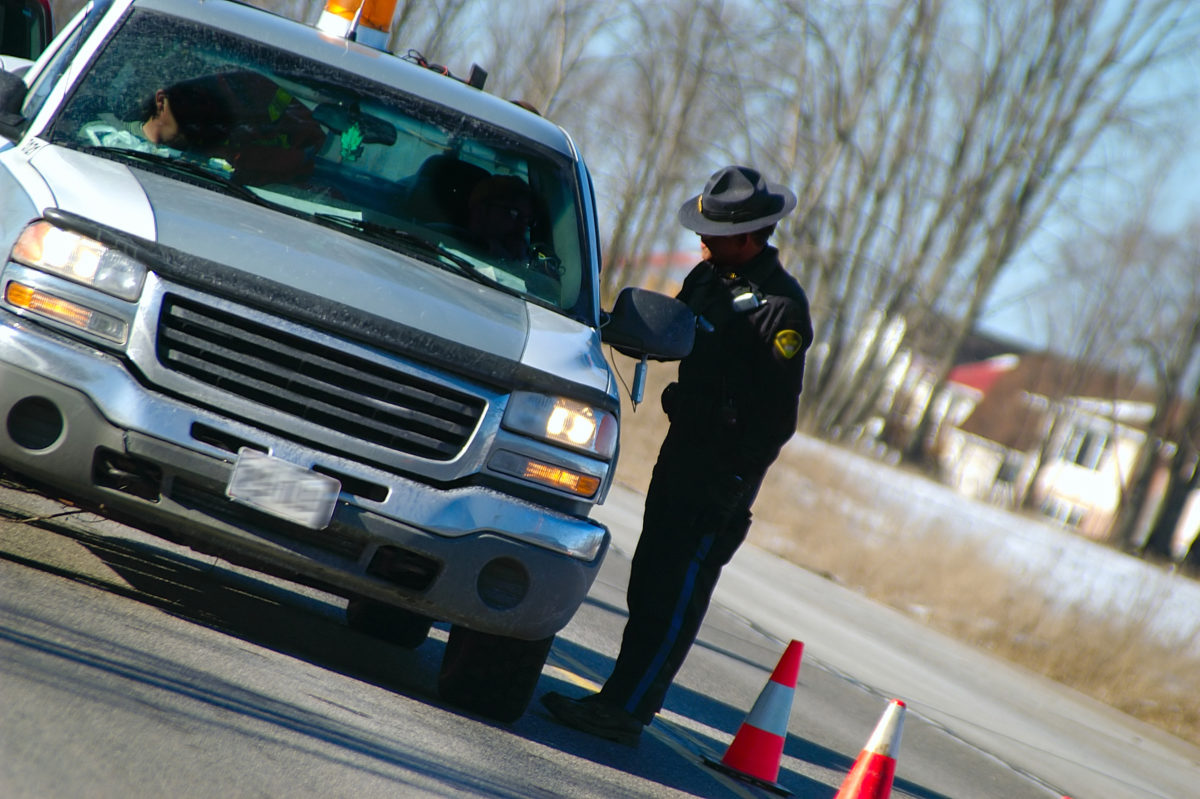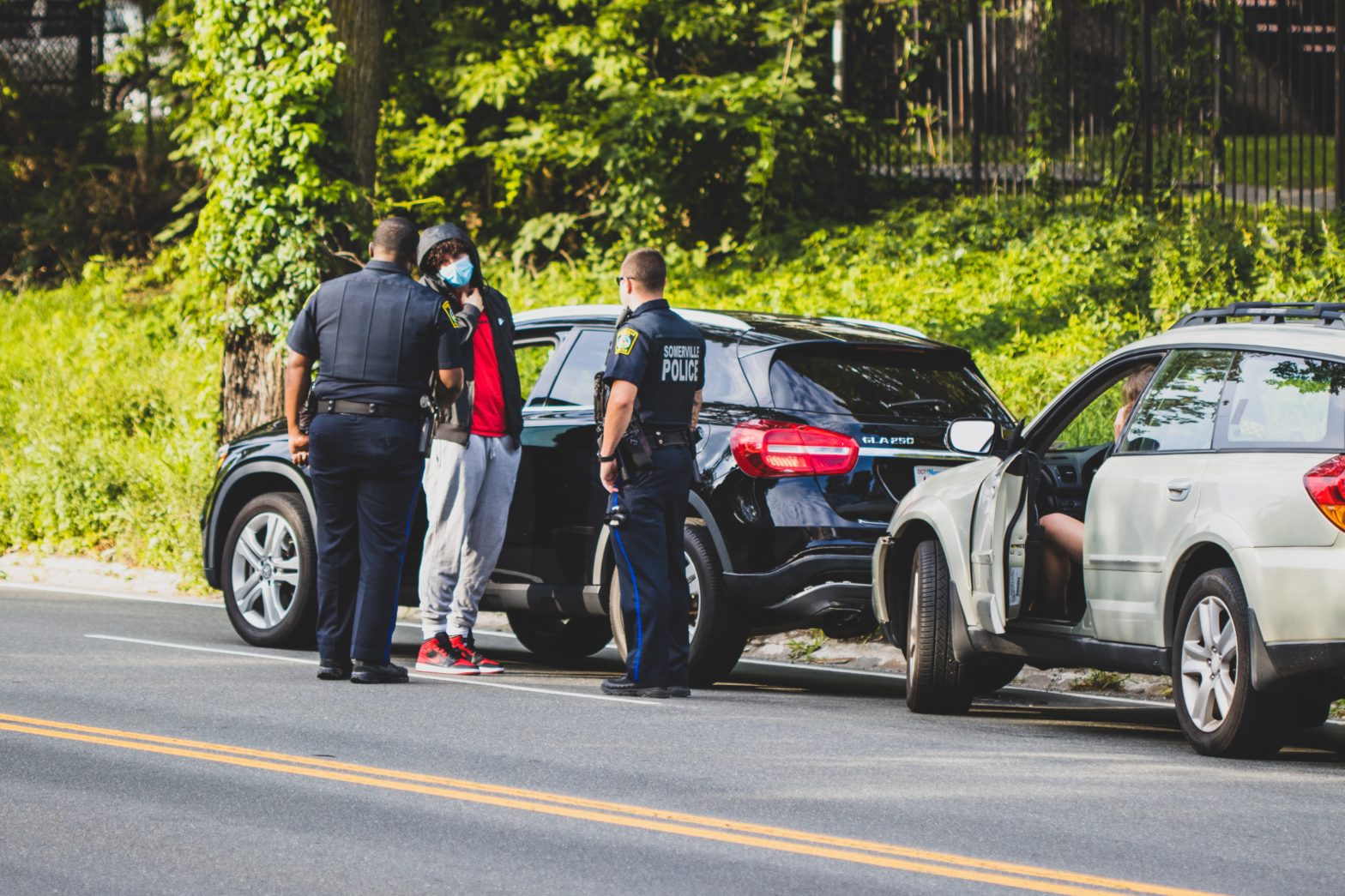 What to Say When Police Ask “Have you Been Drinking?”
What to Say When Police Ask “Have you Been Drinking?”
When you are pulled over for suspicion of driving under the influence of alcohol, you are probably afraid of what could potentially happen to you. The next few minutes could lead to very serious consequences. That is why you should be prepared for the question most police officers ask drivers who are pulled over for DUI: “Have you been drinking?”
This question may seem harmless to you, but the way you respond could have a huge impact on whether you are arrested for DUI. Our experienced DUI lawyers have had many clients who answered this question the wrong way. That’s why we want to explain the best way to answer this question.
What Officers Need to Arrest You for DUI (VC 23512)
In order to place you under arrest for DUI, all a police officer needs is “probable cause.” This essentially means that the facts and circumstances within the police officer’s knowledge would lead a reasonable person to believe that you committed a crime. Probable cause cannot come from an officer’s own suspicion but must come from specific facts and circumstances.
Therefore, if you wish to avoid arrest, you do not want to give the officer probable cause to arrest you. So, how do you answer the question “have you been drinking?” in a way that is not a lie and doesn’t cause the officer to have probable cause to arrest you?
“I’ve Had Two Beers” (VC 31)
For some reason, a common response to “have you been drinking?” is “Yes, I had two beers.”
People usually settle on “two beers” because they believe the officer will accept this answer and because they think two beers is not enough to impair your driving. However, admitting to drinking “two beers” is not a good answer.
When a police officer asks “have you been drinking?” the goal is to try to get you to admit to drinking. An admission that you consumed alcohol is enough to establish probable cause to arrest you. If you tell a police officer you had two beers when in fact you know that is not the truth, you are lying to a police officer. Lying to a police officer is a separate crime pursuant to California Vehicle Code Section 31. A conviction for this crime could result in you serving up to six months in county jail and paying up to $1,000 in fines.
So, what is the proper response to “have you been drinking?”
What to Say When Police Ask “Have You Been Drinking?”
If you have not been drinking, you can honestly answer “no” to this question. However, if you consumed even the tiniest amount of alcohol, you should not lie and also should avoid incriminating yourself.
What we advise everyone who we have represented, as well as all of our personal friends, is merely to answer the officer by saying, “I have been advised by a very experienced law firm not to answer any questions”
There are two good reasons to give this answer. First, it is the truth because Wallin & Klarich is a very experienced law firm, and we are advising you not to answer the officer’s questions.
Second, and most importantly, your answer will not incriminate you in any way. This answer will not provide the police officer with any ammunition to later testify that your statements provided him the probable cause he needed in order to arrest you.
Do I have the right to an attorney if I am asked to take a field sobriety test?
No. In California, the law does not allow for the right to an attorney during voluntary field sobriety tests. Keep in mind that field sobriety tests are voluntary and do not fall within California Implied Consent law.
What do I do if I am asked to take a field sobriety test?
If asked to take field sobriety tests as a part of a DUI investigation, you should exercise your right to refuse any and all field sobriety tests.
Do I have to agree to take a chemical test? What will happen if I choose not to?
Yes. Pursuant to California’s Implied Consent Law, when arrested for DUI, you must submit to a chemical test. After being arrested for DUI, your refusal to submit to a chemical test will trigger immediate and additional consequences for your license and criminal case.
Speak to Our Skilled DUI Defense Attorneys at Wallin & Klarich Today
You should not face DUI charges without the help of an experienced DUI defense attorney. Our skilled and knowledgeable DUI defense lawyers at Wallin & Klarich have been successfully defending clients facing DUI charges for more than 38 years. Let us help you now.
With offices in Orange County, Riverside, San Bernardino, Victorville, West Covina, Torrance, Los Angeles and San Diego, there is an experienced Wallin & Klarich DUI defense attorney available near you no matter where you work or live.
Contact our DUI law firm today at (877) 4-NO-JAIL or (714) 730-5300 for a free phone or virtual consultation. We will be there when you call.
FREQUENTLY ASKED DUI QUESTIONS:
Do questions asked by an arresting officer during a DUI investigation and during administration of Field Sobriety Tests constitute an interrogation for purposes of Miranda?
As a general rule, no. Generally, questions asked by an arresting officer during the administration of a Field Sobriety Test do not constitute an interrogation for purposes of Miranda. Therefore, in this context, the reading of Miranda Rights is not required.
The Courts have routinely held that questions asked of a DUI suspect during the Field Sobriety Tests do not constitute an “interrogation.” For Miranda to be necessary, an in-custody suspect must be subjected to an interrogation by a law enforcement officer. An “interrogation” for purposes of Miranda is defined as words or actions an officer would reasonably expect to elicit an incriminating response. (Rhode Island v. Innis (1980) 446 U.S. 291.) Citing the U.S. Supreme Court case of Pennsylvania v. Muniz (1990) 496 U.S. 582, as its authority, the Court noted that “dialogue” between a police officer and a DUI arrestee during the administration of FSTs consists primarily of carefully scripted instructions as to how the tests are to be performed. Such dialogue also contains limited and carefully worded inquiries as to whether the arrestee understands the instructions. Such inquiries are those necessarily related to the administration of the tests and not ones an officer would reasonably expect to elicit incriminating responses. Any responses by the arrestee at that point are “‘voluntary’ in the sense that they (are) not elicited in response to (a) custodial interrogation.” Absent a custodial interrogation, a Miranda advisal and waiver is legally unnecessary.
Further, in the context of an arrest for driving while intoxicated, a police inquiry as to whether the suspect will take a blood-alcohol test is not typically an interrogation within the meaning of Miranda. As such, asking for an attorney at that time does not necessarily preclude questioning of the suspect following a subsequent waiver of rights.
Is the California DUI Implied Consent Law an exception to the warrant requirement?
Consent is always an exception to the warrant requirement. However, that consent must have been obtained freely and voluntarily. All states have “implied consent” statutes that impose certain non-penal sanctions for refusing to submit to a BAC test upon being arrested for DUI. California’s implied consent provisions are contained in (V.C. § 23612(a)(1)(D)). Such non-penal sanctions include a fine, suspension of the person’s license to drive and/or use of the suspect’s refusal in evidence against him.
The “actual consent” of a DUI arrestee to a blood draw excuses the lack of a search warrant. Whether or not the arrestee actually consented depends upon an evaluation of the totality of the circumstances.
What is the scope of defendant’s consent in agreeing to submit to a DUI blood test?
The standard for measuring the scope of a suspect’s consent under the Fourth Amendment is that of “objective reasonableness—what would the typical reasonable person have understood by the exchange between the officer and the suspect?” A consensual search may not legally exceed the scope of the consent supporting it. It is the government’s burden to prove that a warrantless search was within the scope of the consent given. In a DUI case, while there are certain legal consequences to refusing to submit to a blood or breath test, it must still be shown that an arrestee consented to submit to one of these tests. It is the People’s burden to prove that the consent given by a DUI suspect included within its scope the testing for drugs.




Good advice. As a retired cop, I can say I have heard the two beers thing many times. Many people think that by being compliant and cooperative, the cop will show mercy. Mostly not the case, especially if you are dealing with a cop specifically assigned to traffic duty. If a cop can smell even a hint of booze, and they will, you are likely going for a ride. My best advice is, dont drink and drive.
The answer you supplied will not end the investigation, but it wont screw you up worse than you already are. The less you say, the better off you are.